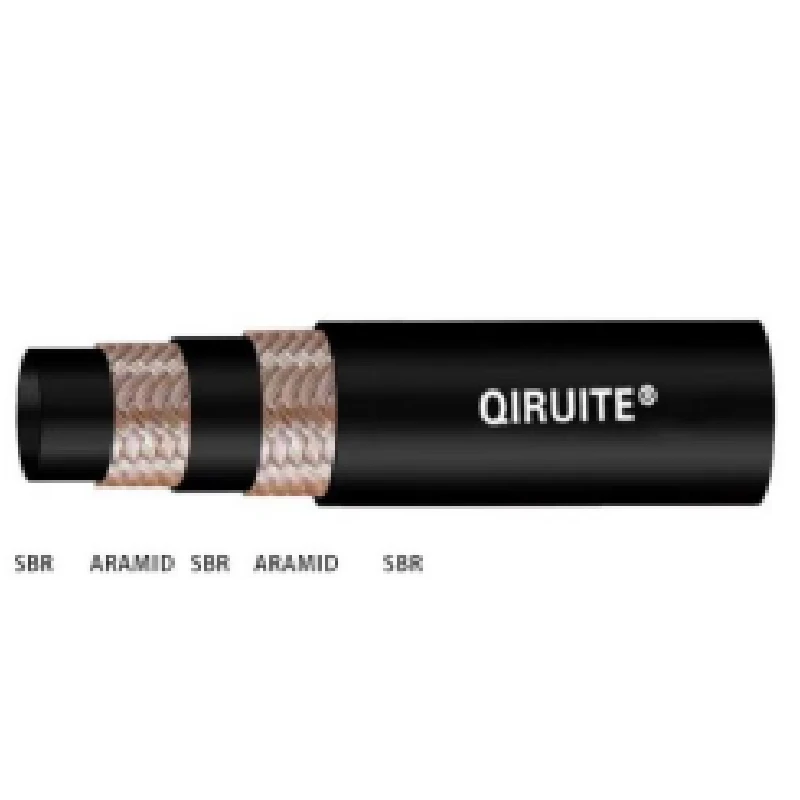Alternative Solutions for J2064 AC Hose Specifications and Applications
Understanding J2064 AC Hose A Key Component in Automotive Air Conditioning Systems
The automotive industry is characterized by a plethora of components working in harmony to ensure optimal vehicle performance and comfort. Among them, air conditioning (AC) systems are crucial for maintaining a pleasant driving environment, especially in extreme temperatures. One of the key components that often gets overlooked in these systems is the J2064 AC hose. In this article, we will delve into what J2064 AC hoses are, their significance, types, and guidelines for maintenance and installation.
What is a J2064 AC Hose?
The J2064 designation refers to the standards established by the Society of Automotive Engineers (SAE) for automotive air conditioning hoses. Specifically, this standard outlines the specifications for refrigerant automotive hoses used in air conditioning systems. The J2064 hoses are designed to withstand the high pressures and temperatures associated with the operation of modern automotive AC systems, making them essential for efficient and safe operation.
Importance of J2064 AC Hoses
J2064 AC hoses play a vital role in transporting refrigerant and lubricant between the various components of the AC system, including the compressor, condenser, evaporator, and expansion valve. Their ability to handle high pressure and extreme temperatures ensures that the refrigerant remains in a gaseous or liquid state, depending on its location in the system. Properly functioning hoses help to prevent leaks, which can lead to a drop in AC efficiency and potentially costly repairs.
Furthermore, the quality and integrity of J2064 hoses directly impact the overall efficiency of the AC system. A worn or damaged hose can lead to decreased performance, increased fuel consumption, and higher greenhouse gas emissions due to refrigerant leaks. Therefore, understanding and maintaining these hoses is crucial for both optimal performance and environmental responsibility.
Types of J2064 AC Hoses
There are several types of J2064 AC hoses commonly used in automotive applications. They can primarily be categorized based on their construction and the materials used
1. Barrier Hoses These hoses have a barrier layer that minimizes refrigerant permeation, reducing the chances of leaks. They are widely used in modern vehicles with R-134a or R-1234yf refrigerants, which have lower global warming potential.
2. Thermoplastic Hoses Designed for lower-pressure applications, thermoplastic hoses are lightweight and flexible, making them easy to install. They are often used in budget vehicles or older car models.
j2064 ac hose

3. Metal Reinforced Hoses These hoses are designed to handle higher pressures and temperatures. They are typically employed in high-performance vehicles where the AC system operates under extreme conditions.
Maintenance and Installation Guidelines
To ensure the longevity and efficiency of J2064 AC hoses, proper maintenance and installation practices must be followed. Here are some guidelines
1. Regular Inspection It is essential to regularly inspect AC hoses for signs of wear, cracks, or leaks. Any visible damage should be addressed immediately to prevent further issues.
2. Use of OEM Parts Always opt for Original Equipment Manufacturer (OEM) parts that comply with the J2064 standard when replacing hoses. This ensures compatibility and reliability.
3. Avoid Excessive Binding During installation, make sure that the hoses are not excessively bent or twisted, as this can lead to kinks that restrict refrigerant flow.
4. Pressure Testing After installation, conduct pressure tests to ensure that there are no leaks and that the system is functioning at optimal levels.
5. Professional Help If unsure about the condition or installation of AC hoses, it is advisable to consult a professional mechanic with experience in automotive AC systems.
Conclusion
In conclusion, J2064 AC hoses are integral to the performance and efficiency of automotive air conditioning systems. By understanding their importance, types, and maintenance practices, car owners and automotive professionals can ensure a reliable and effective cooling experience, contributing to both comfort and vehicle longevity. Remember, a well-maintained AC system not only enhances driving comfort but also promotes environmental responsibility.
-
Ultimate Spiral Protection for Hoses & CablesNewsJun.26,2025
-
The Ultimate Quick-Connect Solutions for Every NeedNewsJun.26,2025
-
SAE J1401 Brake Hose: Reliable Choice for Safe BrakingNewsJun.26,2025
-
Reliable J2064 A/C Hoses for Real-World Cooling NeedsNewsJun.26,2025
-
Heavy-Duty Sewer Jetting Hoses Built to LastNewsJun.26,2025
-
Fix Power Steering Tube Leaks Fast – Durable & Affordable SolutionNewsJun.26,2025

